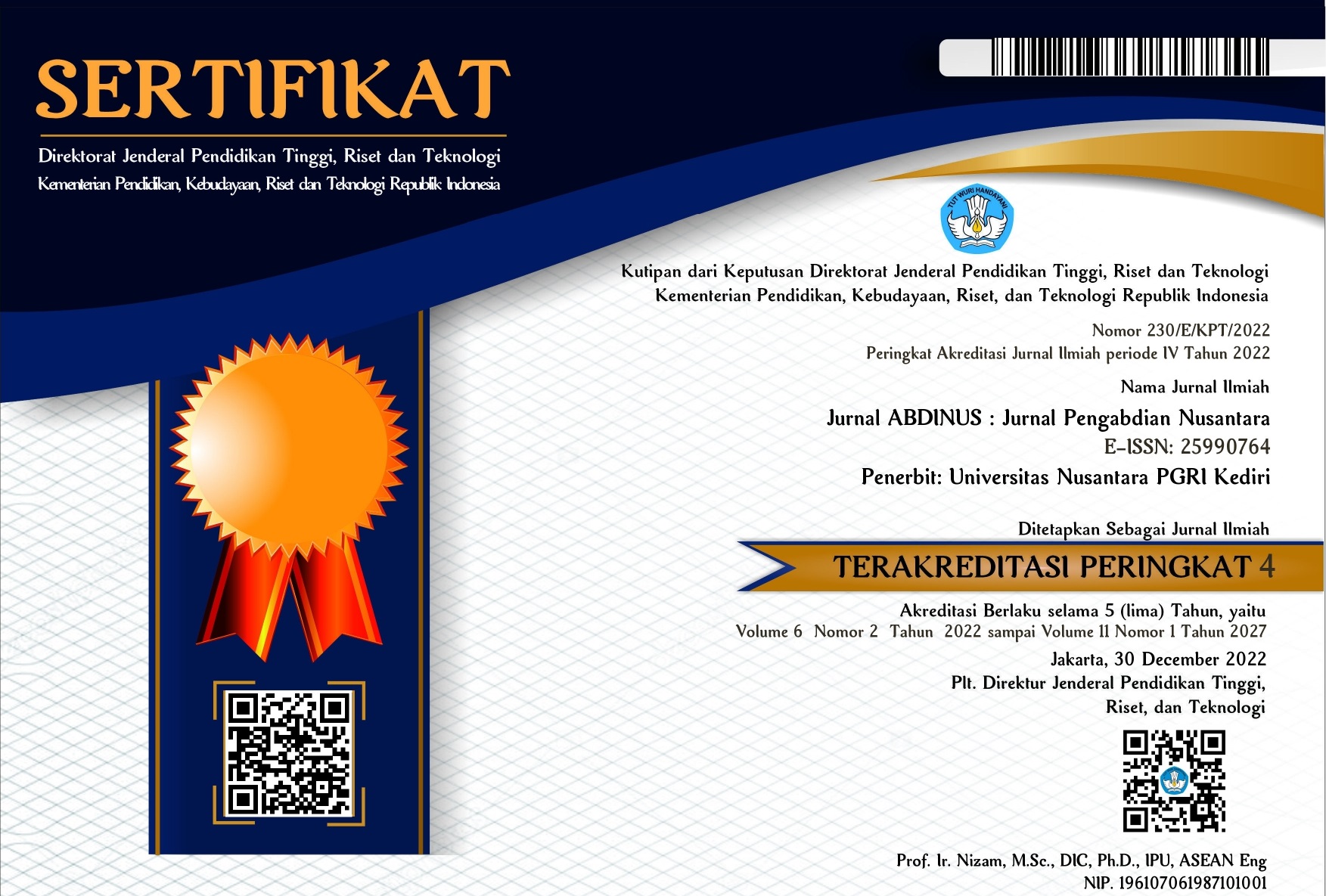Penerapan English For Specific Purposes Untuk Meningkatkan Pengajaran Bahasa Inggris Pada Guru Sekolah Menengah Kejuruan
DOI:
https://doi.org/10.29407/ja.v2i2.12767Keywords:
English for Specific Purposes, Vocational English TeachingAbstract
The purpose of teaching English in Indonesia has been stated in the Decree of the Minister of Education and Culture No. 096/1967 on December 12th, 1967. The decree is to develop students' communicative English skills which are included listening, reading, writing and speaking skills. In the university level, students are expected to have grammatical knowledge of English and they can apply it in communication and interaction in life. English for Specific Purposes (ESP) or English for special purposes is a new approach in teaching and it is used in English for specific fields and studies which are in accordance with the needs of the field of science and the profession of English language users. The objectives will be achieved from this program are: Providing an introduction to mastery skills about English for Specific Purposes for Vocational School Teachers, it is used to improve teaching English and Deepen knowledge of English for Specific Purposes. Besides, to support English teaching and how to solve the problems if applying English for Specific Purposes in English teaching. The implementation of service requires 3 months consisting of: (1). Preparation includes surveys and place permit, (2). Socialization and audience, (3). The implementation of training and workshop activities for 4 meetings and evaluation in accordance with the material and practice of the teachers in one of the Vocational Schools in Kediri city, (4). Writing community service reports.
Downloads
References
Nurhadiyanto. 2015. Pengaruh Manajemen Sumber Belajar Terhadap Prestasi Belajar Dengan Kemampuan Berfikir Kritis Dan Kemampuan Bahasa Inggris Sebagai Variabel Moderasi Di AMIK Cipta Darma Surakarta. Among Makarti Vol.8 No.15, Juli 2015.
Redhana, I Wayan. 2003. Meningkatkan Keterampilan Berpikir Kritis Siswa Melalui Pembelajaran Kooperatif Dengan Strategi Pemecahan Masalah. Jurnal Pendidikan dan Pengajaran XXXVI. II: 11-21.
Rumpagaporn, Methinee Wongwanich and I Gusti Ngurah Darmawan. 2007. Students’ Critical Thinking Skills in a Thai ICT Schools Pilot Project. International Education Journal, 2007, 8(2), 125-132. ISSN 1443-1475 © 2007 Shannon Research Press. http://iej.com.au 125.
Sukarta , I Nyoman, S.Pd., M.Si, dkk. 2012. Pelatihan Pembelajaran Inovatif Bagi Guru-Guru Di Smp Negeri 2 Kubu. Jurnal Pengabdian Kepada Masyarakat. Vol.1 Juli 2012. ISSN: 1410-4369.
Suyanto, Asep, Herman. (2007). Web Design Theory and Practices, Yogyakarta: Andi offset.
Thomson, A. (1998). The Adult and the Curriculum. [Online]. Diakses pada tanggal 2 Juli 2018 di http:/ /www.ed.uiuc.edu/EPS/PES-Yearbook/1998/thompson.html















